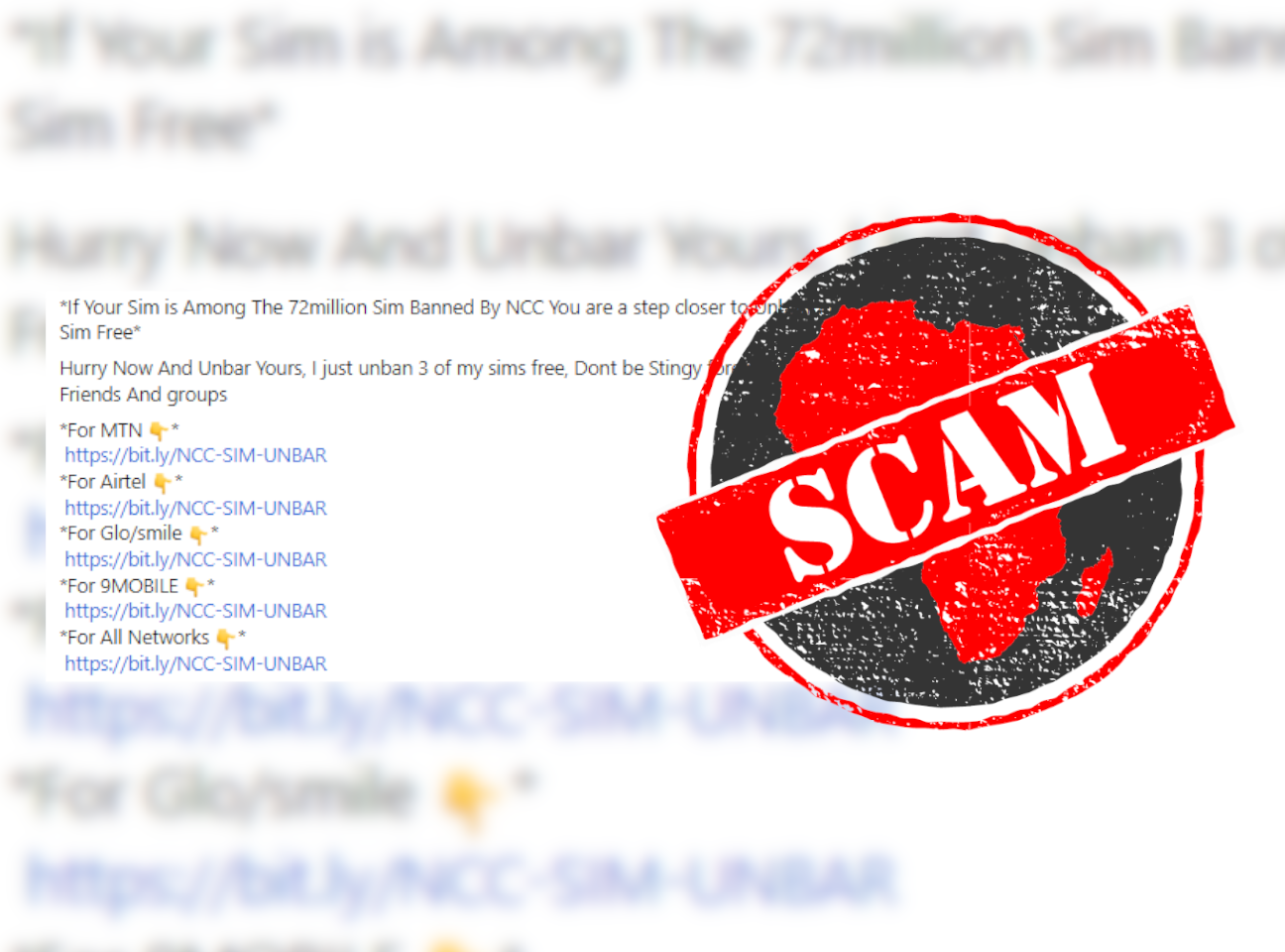“If Your Sim is Among The 72million Sim Banned By NCC You are a step closer to Unbaring Your Sim Free,” reads a message circulating on Facebook in Nigeria since April 2022.
NCC is the Nigerian Communications Commission, the authority that regulates telecoms in the country.
The message claims mobile phone subscribers with blocked SIM cards can undo the ban by following the links it provides.
“Hurry now and unbar yours, I just unbarred three of my SIMs free. Don’t be stingy, forward to other friends and groups,” it adds.
In April, Nigerian president Muhammadu Buhari approved a policy giving telecoms companies the power to block SIM cards not linked to a national identification number (NIN).
An estimated 72 million SIMs were blocked, leaving owners unable to use their phones.
But could they unblock their phones using the links in the message? We checked.

NCC: Ignore ‘mischievous’ message
On 11 April the NCC issued a press statement warning against the viral message.
“The link and accompanying narrative represent patent misinformation and disinformation certainly designed to mislead the general public about the SIM cards that are barred from making calls, due to non-linkage with NIN at the set deadline,” the statement reads.
“The misleading, viral message mischievously displays the NCC logo and ostensibly promises members of the public that, by clicking the web link and following further instructions in that regard, subscribers with barred SIM cards can unbar such SIMs across mobile networks without a valid NIN.”
The statement adds that the message was not issued by the NCC, and that the commission had not told subscribers that they could unbar their SIMs without a NIN.
“Therefore, their message should be disregarded.”
Phishing scam
The links in the message go to a blog that asks visitors to enter their phone numbers to activate airtime and free data.
The incorrect URLs and spelling errors are signs of a phishing scam – online scams that claim to come from a legitimate source and ask people to supply their personal information. This can lead to identity theft.
Republish our content for free
For publishers: what to do if your post is rated false
A fact-checker has rated your Facebook or Instagram post as “false”, “altered”, “partly false” or “missing context”. This could have serious consequences. What do you do?
Click on our guide for the steps you should follow.
Publishers guideAfrica Check teams up with Facebook
Africa Check is a partner in Meta's third-party fact-checking programme to help stop the spread of false information on social media.
The content we rate as “false” will be downgraded on Facebook and Instagram. This means fewer people will see it.
You can also help identify false information on Facebook. This guide explains how.


Add new comment